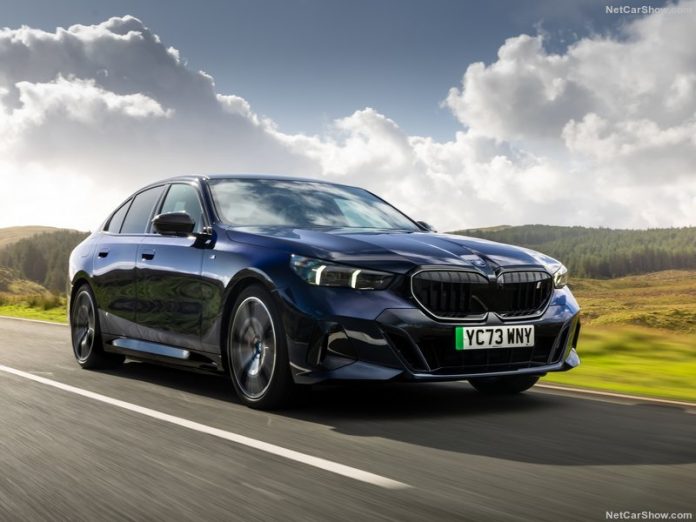British Auto Market is stagnating in 2024. New car passenger sales in November totaled 153,208 (-0.9%) with YTD figures at 1,8 million (+3.3%). BMW moved up 4 spots to claim 2nd position (+16.2%), closing in on leader Volkswagen.
Market Trend and Outlook
The UK’s GDP growth is expected to be 0.4% in 2024, before gradually improving to 1.0% in 2025 as the impact of previous monetary tightening diminishes. The economy has struggled in recent years under the pressures of economic shocks such as the COVID-19 pandemic and Ukraine war.
Looking at cumulative data for November 2024, Volkswagen was still the best selling brand with 150,529 sales (+2.6%).
BMW rose 4 spots into 2nd with 116,474 sales (+16.2%) while Audi ranked 3rd with 116,256 sales (-9%).
In fourth place Kia -up 1 spot- with 108,267 sales (+5.3%) followed by Ford -down 3 spots- with 96,243 (-25.1%), and Toyota -down 2 spots- with 93,853 units sold (-11.2%).
In seventh place Nissan -up 1 spots- with 93,608 (+14.2%) ahead of Mercedes -up 2 spots- with 91,552 (+18.2%), Hyundai with 86,693 (+8.2%) and in 10th place MG -up 1 spot- with 74,412 sales (+1.5%).
Looking at best-selling models, the leader was still the Ford Puma with 45,538 units sold (-1.9%). The Kia Sportage -up 3 spots- followed in 2nd with 45,454 (+31.3%) while the Nissan Qashqai -down 1 spot- ranked in 3rd at 39,047 (-0.1%).
Medium-Term Market Trend
The decline of the British vehicles market was already in place since a couple of decades, with the relocation of several manufacturing activities in other low cost European countries, but the exit from the European Community has further accelerated the process, starting from the long discussions about BREXIT.
Indeed the market reached a record level in 2016 (2.6 million annual sales) and then started to decline. The pandemic in 2020 further accelerated the process pushing the industry down to 1.6 million and rather than recovering, it seems that the market direction is still down.
In the following two years, in fact, the British market didn’t perform quite well. In 2021 volume remained relatively flat, with sales rising merely 0.7% and in 2022 the market dropped further, losing 1.6%.
Indeed, the effects of current global threats, including record inflation rate, increased fuel price, political instability, transition to electrification, raw materials shortage, are emphasized in UK by the economic effects of BREXIT.
In 2023 the market finally reported a relevant increase with sales improved 17% at 1.9 million.
Tables with sales figures
In the tables below we report sales for the top 40 Brands and top 10 Manufacturers Groups and the top 10 models.











